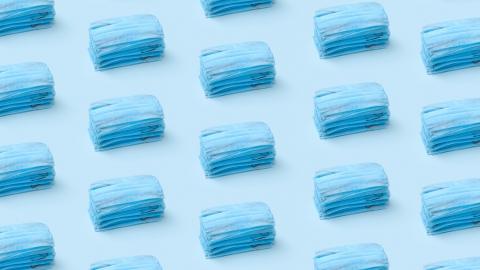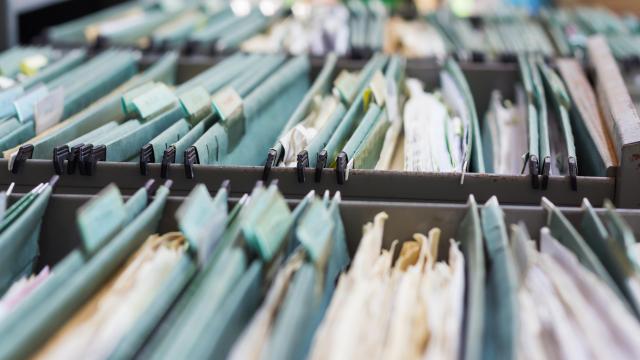Plastic pollution from face masks could devastate the environment

Credit: DS stories / Pexels
- A new study suggests that the huge numbers of disposable masks we’re using may end up polluting the environment.
- The materials used to make some of these masks may be especially disposed to break down into microplastic bits.
- Once those plastic bits get into the environment they end up everywhere, including inside people.
The face mask might be the quintessential image of this pandemic. Required attire for almost every activity taking place outside your home, masks are now made by high-end fashion companies in a variety of colors and will likely continue to be worn by many people even after COVID-19 is brought under control.
For those of us who aren’t willing to shell out for a Louis Vuitton face mask, cheaper and often disposable options have become the norm. Many of these surgical masks are made of a combination of absorbent fabrics, polyester, and common plastics such as polypropylene or polystyrene.
Despite their life-saving qualities, the incredible consumption of these masks is likely to create a new problem: what to do with the plastics in them as we toss them aside after use. A new study suggests that this might be a bigger problem than we expect.

Gary Stokes, founder of the environmental group Oceans Asia, poses with discarded face masks he found on a beach in the residential area of Discovery Bay on the outlying Lantau island in Hong Kong.Credit: ANTHONY WALLACE/AFP via Getty Images
According to recent studies, humanity is going through 129 billion face masks a month, which works out to three million a minute. While we go through a lot of plastics in a month, the number of plastic bottles we use has been estimated at 43 billion a month, a large fraction of those have well-known guidelines around them promoting recycling.
Such information doesn’t exist for masks, making it likely that most of them are ending up in the trash.
Like any other object with plastic in it, improper disposal can cause the plastic to enter the environment. Where the tiny bits of plastics spread into water and soil before eventually working their way into animals. The authors of this study, doctors Elvis Genbo Xu of the University of Southern Denmark and Zhiyong Jason Ren of Princeton, argue that the specifications of these masks make them particularly likely to contribute to plastic pollution:
“A newer and bigger concern is that the masks are directly made from microsized plastic fibers (thickness of ~1 to 10 micrometers). When breaking down in the environment, the mask may release more micro-sized plastics, easier and faster than bulk plastics like plastic bags. Such impacts can be worsened by a new-generation mask, nanomasks, which directly use nano-sized plastic fibers (with a diameter smaller than 1 micrometer) and add a new source of nanoplastic pollution.”
At the moment, no data on how much masks have contributed to the amount of plastic in the environment exists.
The authors suggest that there are steps to be taken to prevent this problem from getting out of control. They include helping people switch from disposable plastic masks to reusable cloth ones, inventing biodegradable masks, designating special disposal areas for masks, and standardizing waste processing procedures concerning these plastics.
Plastic pollution is pretty terrible for the environment. Animals can confuse small bits of plastic for food, consuming it instead of something nourishing and starving to death as their stomachs fill. The chemicals in plastics can also cause various ailments if consumed, even if the amount eaten isn’t enough to kill the animal.
Before you say that you don’t care about fish, birds, or any other kind of wildlife, remember that studies are finding ever-increasing amounts of plastic in people, too. Many of the chemicals in these plastics are associated with health risks, including cardiovascular diseases and cancer.
The benefits of face masks are beyond debate, but the side effects of throwing out so many disposable masks may prove to be quite terrible if we’re not careful.





